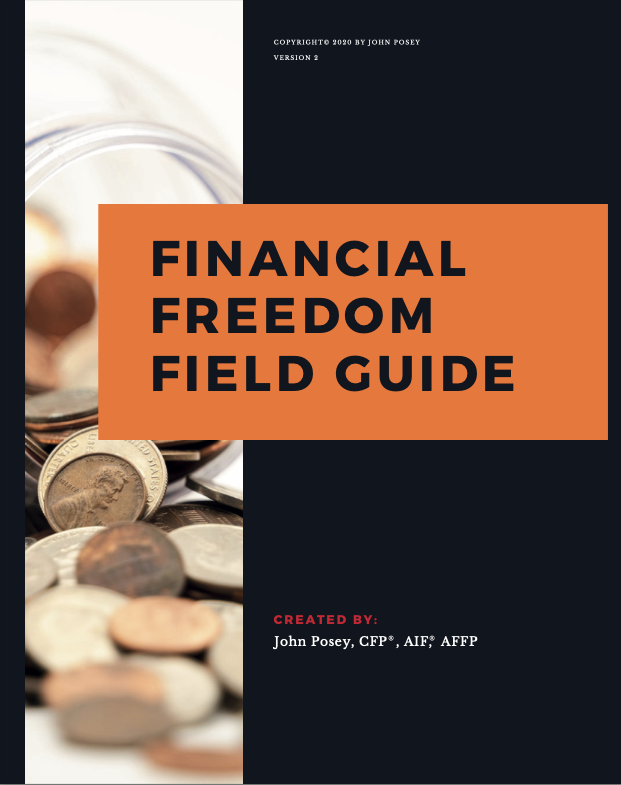This is the second post in a series of posts I’m calling, The Best Books I’ve Read. Included is a summary of one of the most enlightening and transformative books I’ve read with links and information on where to find it. And here’s the spoiler – none of the books are specific to investing. If you are looking for some material in that category, check out the Financial Freedom Field Guide.
The following book may challenge the way you’ve been conditioned to think and act in a way that opens your mind to new possibilities you may have never considered. Below I’ve summarized key takeaways but you need to read it for yourself to experience everything the book has to offer which I could never give justice in a summary. What you find could be life-changing. At a minimum, it could give you some gift ideas for a graduation or birthday. I often choose the audiobook versions to listen to on the daily commute which has helped me fit books into my schedule. I hope you find this material as valuable as I have. Lastly, I do not receive any incentive to mention these books – I just think they are worth reading.
The 4-Hour Workweek by Timothy Ferriss
What’s it about?: Living a flexible lifestyle on your terms.
Who’s it for?: Ages 18 and up – the author uses some crude humor and shares stories that I find entertaining but may not be appropriate for younger readers. This is for current and aspiring business owners, freelancers, virtual/remote based businesses, and adventurous souls.
I know what you’re thinking, “Haha, that’s cute. A four-hour workweek…yeah right. In what universe can you only work four hours a week and afford to put food on the table? I’ll take that job once I find the road to Fantasy Land. This guy sounds like a bum. Join the real-world buddy…” How was my aim? Probably pretty close if you’re like me. I’m a hard-working, small-town proud member of the workforce, and I know the value of a hard day’s work. I don’t need somebody trying to blow sunshine up my backside with this 4-hour workweek nonsense – that was my first impression. I have to admit I probably would have never picked up this book if it wasn’t strongly endorsed by some people I respected, and I knew were successful. The true value of this book is opening up your mind to possibilities you probably have never considered and new ways of thinking you may never heard of. The ideas shared could have the potential to make a significant impact on your life. Tim’s perspectives are uniquely fresh and often resonate with ambitious, adventurous, and entrepreneur-minded people. For most, I don’t think you should expect to slash your typical working hours or escape your job after reading this, but it could very well be the compass some people are looking for. In any event, it may give you some newfound perspectives that could prove to be very valuable to you or someone you know.
Here are a few key concepts I think most of us can benefit from, starting with Tim’s description of absolute versus relative income. Tim provides the example of two hard-working chaps, Chap A moving at 80 hours a week and Chap B at 10 hours a week and each makes $50,000 per year. Who passes away richer in the middle of the night? If you said Chap B, you understand the difference between absolute and relative income. Absolute income is only the almighty dollar while relative income considers both time and money. Focusing only on absolute income has its pitfalls. It is similar to the conventional perspective that believes working long hours equals more self-worth, prestige, and respect as we’ve been conditioned to believe as Tim points out. It is a commonly practiced belief in nearly every occupation. You’ve been rewarded for personal sacrifice over personal productivity, right? Step back and think about that for a minute. Who is the real benefactor of your long hours? Your employer, your customers, you, or your family? It’s all a matter of perspective, right? Absolutely, but be honest with yourself – who is getting the best of you? Are you okay with that? That might have felt like a dig to all those hard-working people that complain or brag (it’s hard to tell sometimes) about all the hours they put in. If you’re basing your worth primarily on hours worked, that’s a condition to be aware of and you should consciously decide whether that mindset is in service to what’s most important to you – your deepest held values. Being an employee with a strong sense of worth tied to hours put in for over ten years of my career, I can relate. If you are in an occupation that you could work for yourself and maybe even have others working for you, I officially give you not only the permission but the encouragement to consider those other options very seriously. Focus on being productive rather than busy. No more work for work’s sake as Tim puts it. It’s important to realize this is a choice you can make. This book will help open your mind up to the possibilities.
If you have one ounce of entrepreneurial spirit in your blood, this is a MUST READ. All business owners would benefit from Ferriss’s perspectives, particularly if you are hovering in the burnout stage. No matter your occupation or business, you undoubtedly will find some gold in this book that could effect positive change in your life and the lives of others.
Tim also has a podcast called The Tim Ferriss Show where he interviews authors, athletes, and other famous figures and they have conversations around things that led to their success. It’s one of the most popular in the world at more than 500 million downloads.
Advisory services offered through Plains Advisory LLC, an investment adviser registered with the State of Nebraska. Insurance products and services are offered and sold separately through John Posey, a licensed insurance agent. No investment strategy can guarantee a profit or protect against loss in periods of declining values. Opinions expressed are subject to change without notice and are not intended as investment advice or to predict future performance. Past performance does not guarantee future results. Any information provided is designed to provide general information on the subjects covered, it is not, however, intended to provide specific legal, tax, financial or investing advice and cannot be used to avoid tax penalties or to promote, market, or recommend any plan or arrangement. Material presented is believed to be from reliable sources and no representations are made by our firm as to another parties’ informational accuracy or completeness. All information or ideas provided should be discussed in detail with an advisor, accountant or legal counsel prior to implementation.


